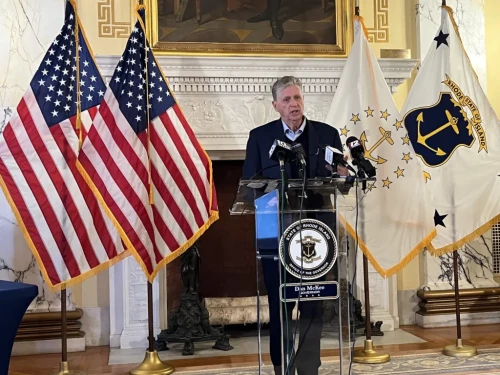The latest version of President Trump’s domestic policy bill would gut federal incentives and subsidies for solar and wind, and likely slow one of the fastest-growing sectors of New England’s economy.
Investors in SouthCoast Wind have spent $600 million over the past 7 years on an ambitious plan to harness the wind off Nantucket and Martha’s Vineyard.
Designing, permitting and engineering nearly 150 offshore windmills has taken much longer than expected. There have been lots of objections.
Now the developers will likely face a difficult choice. Under the current version of the bill, they would need to get the project up and running by the end of 2027 or risk losing their investment tax credits.
It may not be possible to get it done in time.
Dozens of other green energy programs in New England are now under threat, forced to decide if the conditions are favorable to continue the work.
“It’s thousands of jobs, and a lot of those jobs were going to local Rhode Islanders,” said Erica Hammond, legislative director of Rhode Island AFL-CIO.
She said Rhode Island had been poised to become a hub for offshore wind.
“We had developers who were moving offices here,” Hammond said. “We have the port of Providence and Quonset as perfect opportunities for staging for offshore wind, not just for projects that were going to be coming on line here in Rhode Island, but for Massachusetts and even New York.”
Now, a promising new sector of Rhode Island’s economy — offering high-paid technical jobs and a product that was supposed to lower prices for ordinary consumers — is suddenly in limbo.
Rhode Island lawmakers say – if ultimately passed in its present form – the Trump bill will mean higher electricity prices and a severe setback for the state’s climate goals. Rhode Island had hoped to move to 100% renewable electricity by 2030, but the so-called Big Beautiful Bill will likely make it difficult to achieve that.
“The Trump Administration is killing jobs and increasing utility bills so it can hand out bigger tax breaks to Big Oil and Coal,” Rhode Island Sen. Jack Reed said in a statement. “As a result, foreign competitors like China are powering ahead on renewables while the Trump Administration constrains innovative clean energy development.”







